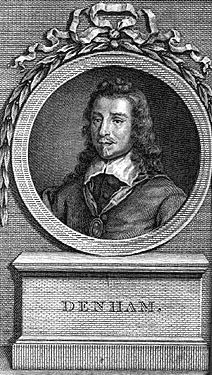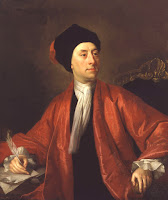Sunday, July 27, 2025
Sunday, July 13, 2025
Few want to consider that the impulse to genocide has deep roots in human nature, and even in Jewish religion itself
Thursday, January 2, 2025
The early 1970s Shiloh Fellowship in East Lansing, MI, was literally a multi-level marketing scheme which preyed on the many to enrich the few
... The message, which came straight from Christian Growth Ministries in Ft.
Lauderdale, was this: the “Jesus movement” most of us belonged to was a
good thing that had run its course. It was now time to start building
the Kingdom of God. The Body of Christ, meaning the church, was more
important than the individual Christian. ...
In 1975, the New York Times published an article entitled “Growing Charismatic Movement is Facing Internal Discord Over a Teaching Known as ‘Discipling.’” That was us, and I had by that year moved into the house on Brookfield Drive with three other “brothers.” Discipling and shepherding were the same thing. According to this teaching, the true church was not the usual setup of pastor and congregation but rather a vast network of relationships between sheep, who could be men, women, or children, and shepherds, who could only be men. You weren’t a real Christian unless you were personally “accountable” or “submitted” to a local shepherd who watched over all parts of your life. You also paid tithes directly to this person, who in turn tithed to the shepherd above him in a pyramid whose summit was in—you guessed it—Ft. Lauderdale. ...
I soon had my own shepherd, a Jewish convert named Kim Levinson who
answered directly to Erik, who answered to Derek Prince, one of the
Five. In Charismatic circles, Derek was a genuine celebrity whose books
and cassette tapes circulated widely. His calling card was exorcism, a
subject that, like shepherding, divided the Charismatic movement. ...
We were growing as a group, and almost everyone
worked and tithed. I worked night shifts full-time at a twenty-four-hour
restaurant. A sizable portion of our money went straight to Ft.
Lauderdale, but we still had enough to buy the church building from our
Lutheran landlords, who moved elsewhere. There was also enough to buy
Erik and his wife a house near the church. A key tenet of the movement
was “service” to those in authority, and I eagerly volunteered to help
Erik with chores around his new house. ...
The group soon had seven or eight full-time shepherds who followed Erik’s lead by using money from tithes to buy houses near the church. Though mostly in their early twenties, they became known as “the elders” and assumed increasing importance at meetings and elsewhere as Erik began traveling, often for weeks at a time, with his mentor Derek [Prince]. The two men (Erik and Derek, as we called them) frequently went overseas to spread the movement’s teachings to London, Paris, Amsterdam, Jerusalem, and elsewhere. It was on our dime, of course, and some of us found it troubling while others attributed all doubts about it to you-know-who. ...
I went up to Erik and told him I had decided to leave the group. “I
respect what you’re saying,” he said. “Let’s talk about it.” I was still
working the night shift at the restaurant and met him there for
breakfast a few days later. After admitting the Fellowship had lately
experienced a few problems, he said we were back on track and tried to
persuade me to stay. If I did, I would be “discipled” by him personally
and would learn exorcism, have access to the group’s money, and maybe
meet one of the sisters as a prelude to getting married. ...
Monday, June 10, 2024
Pope Francis clearly believes in a little bit of depravity in each person, just not in total human depravity lol
Norah O'Donnell: When you look at the world what gives you hope?
Pope Francis (In Spanish/English translation): Everything. You see tragedies, but you also see so many beautiful things. You see heroic mothers, heroic men, men who have hopes and dreams, women who look to the future. That gives me a lot of hope. People want to live. People forge ahead. And people are fundamentally good. We are all fundamentally good. Yes, there are some rogues and sinners, but the heart itself is good.
More.
Your average American Catholic, however, has faith in a caricature of Jesus of their own making, as gooey and sentimental as any Protestant's, as Samantha Stephenson demonstrates here. Their common Jesus never called anyone to repent, never said few would be saved, never warned of impending wrath.
Between the errors of total depravity and fundamental human goodness lies the correct view, mixed human nature. Like the scholastics of a by-gone era, however, the pope splits hairs in the wrong direction from this, landing on the side of human nature being more of a good mixture than the not totally bad mixture emphasized by Paul:
We know that the law is spiritual; but I am carnal, sold under sin. I do not understand my own actions. For I do not do what I want, but I do the very thing I hate. Now if I do what I do not want, I agree that the law is good. So then it is no longer I that do it, but sin which dwells within me. For I know that nothing good dwells within me, that is, in my flesh. I can will what is right, but I cannot do it. For I do not do the good I want, but the evil I do not want is what I do. Now if I do what I do not want, it is no longer I that do it, but sin which dwells within me. So I find it to be a law that when I want to do right, evil lies close at hand. For I delight in the law of God, in my inmost self, but I see in my members another law at war with the law of my mind and making me captive to the law of sin which dwells in my members. Wretched man that I am! Who will deliver me from this body of death?
-- Romans 7:14ff.
For his part Martin Luther, against the Reformed proponents of total depravity, affirmed that the Christian is simul justus et peccator, at the same time just and sinner, because of Christ.
The view was also Shakespeare's:
The web of our life is of a mingled yarn, good and ill together: our virtues would be proud if our faults whipped them not; and our crimes would despair if they were not cherished by our own virtues.
Friday, May 6, 2022
Friday, December 6, 2019
Saturday, May 6, 2017
Catholic Archbishop of Philadelphia praises pope's anti-fanaticism and Athanasius all in the same breath
Saturday, April 21, 2012
"Methodist": Another Way To Spell "Pest"
"The web of our life is of a mingled yarn, good and ill together: our virtues would be proud if our faults whipped them not; and our crimes would despair if they were not cherished by our own virtues."
-- William Shakespeare, All's Well That Ends Well, 4.3.84







